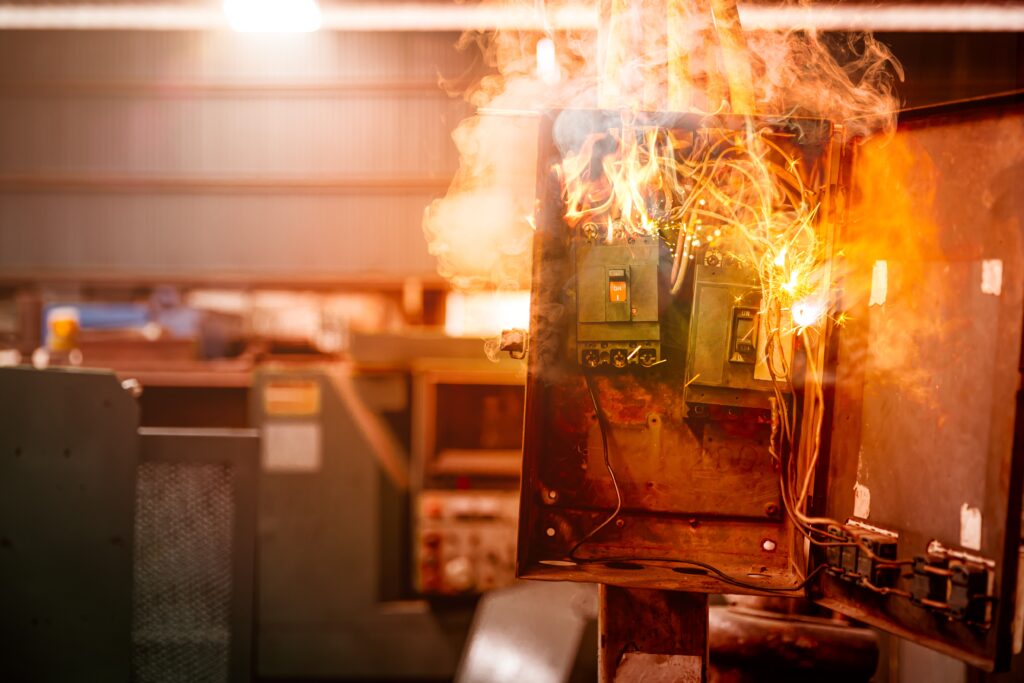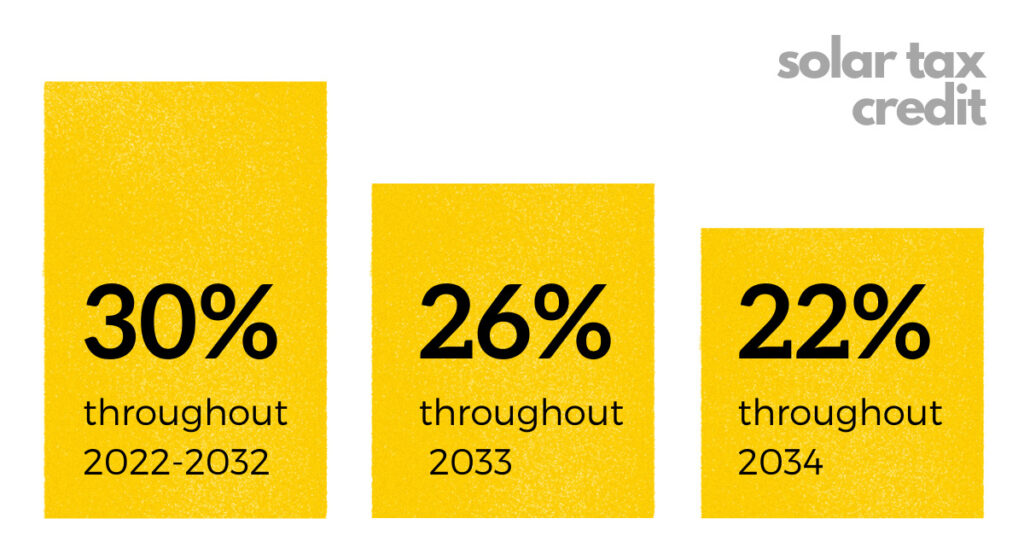Lithium-ion (Li-ion) and lithium iron phosphate (LiFePO4) batteries are two popular options when picking a battery for your home energy storage needs. Each has advantages and disadvantages, and it’s essential to consider your specific energy requirements, budget, and safety concerns before deciding.
Lithium-Ion Batteries
Lithium-ion batteries are the most commonly used rechargeable batteries for portable devices like smartphones and laptops, as well as electric vehicles and home energy storage systems. Li-ion batteries are known for their high energy density, which means they can store much energy in a small space. They also have a long lifespan and can retain up to 80% of their original capacity even after 1000 charge and discharge cycles.
Benefits of Lithium-ion batteries:
- High energy density and long cycle life
- Lightweight and compact design
- Fast charging and discharging capabilities
- Suitable for a wide range of applications, including portable electronics and electric vehicles
Drawbacks of Lithium-ion batteries:
- High cost compared to other types of batteries
- Can be unstable and prone to overheating or catching fire
- Limited lifespan, with capacity decreasing over time
- Require specialized disposal methods due to the presence of toxic materials
Lithium Iron Phosphate Batteries
Rechargeable lithium iron phosphate batteries, also referred to as LiFePO4 batteries, are a kind of battery that has become increasingly common for usage in home energy storage systems. Because of its stability and safety, LiFePO4 batteries are a popular alternative for homeowners concerned about potential battery risks. They also have a long lifespan and can retain up to 80% of their original capacity even after 2000 charge and discharge cycles.
Benefits of Lithium-iron batteries:
- Long lifespan, with capacity remaining stable for thousands of cycles
- High power density and fast charging capabilities
- Safe and stable, with low risk of overheating or catching fire
- Environmentally friendly, with fewer toxic materials than lithium-ion batteries
Drawbacks of Lithium-iron batteries:
- Lower energy density compared to lithium-ion batteries
- Heavier and bulkier than lithium-ion batteries
- Limited availability and higher cost than other types of batteries
- May require specialized charging equipment to optimize performance
Lithium-ion and lithium iron phosphate batteries offer significant advantages over traditional lead-acid batteries regarding energy density, cycle life, and efficiency. People often use lithium-ion batteries in various electronic devices, including smartphones, laptops, and electric vehicles. However, another type of battery called lithium iron phosphate has been gaining attention due to its unique features and benefits. They tend to last longer and be safer thanks to their stable chemistry.
Ultimately, the choice between the two battery types depends on the specific application and needs of the user. Lithium-ion batteries are a great choice for devices that require high energy density and low weight. In contrast, lithium iron phosphate batteries are ideal for applications that prioritize safety, durability, and longevity. As technology advances and the demand for more sustainable energy storage options increases, both battery types will likely continue evolving and improving.
Safety Considerations Of Lithium Batteries
Safety is a crucial factor to consider in home energy storage systems. Understanding the potential risks associated with lithium batteries is essential before purchasing. From thermal runaway risks to fire hazards, learn how to keep your home safe by reading more about the safety considerations of lithium batteries.
Here are some of the key safety considerations of lithium batteries:
-
-
- Thermal Runaway Risks: Thermal runaway is one of the biggest safety considerations for lithium batteries. This phenomenon occurs when a battery cell overheats. Potentially causing neighboring cells to heat up, leading to a fire or explosion. Proper storage, handling techniques, and regular monitoring and maintenance of the batteries are essential to prevent this risk.
-
-
-
- Fire Hazards: Lithium batteries have been known to pose a high risk of fire hazard. Faults within the battery can cause overheating and thermal runaway, which increases the likelihood of a fire breaking out. Proper maintenance and following manufacturer’s instructions around handling these devices could significantly reduce potential hazards arising from their use.
-

Lithium War: Which Battery Wins in the Fight for Energy Storage?
-
-
- Environmental Impact of Lithium Batteries: The environmental impact of lithium batteries is another important consideration. From the mining and production processes involved in extracting lithium, cobalt, nickel, and other materials used in their construction, to challenges with recycling and disposal, lithium batteries significantly impact the environment.
-
Here are some of the key environmental considerations of lithium batteries:
-
-
- Mining and Production Processes: Lithium-ion batteries require significant lithium. Lithium extraction’s mining and refining processes are energy-intensive and have negative environmental impacts. The electrolyte solution used in lithium-ion batteries is typically made from flammable or toxic solvents when not handled properly during production.
-
-
-
- Recycling and Disposal Challenges: Recycling and proper disposal of lithium batteries pose environmental challenges. These batteries’ mining and production process require massive amounts of energy, chemicals, and water, which can contribute to air pollution and habitat destruction. Improper disposal can lead to fires in landfills or battery recycling facilities. On the other hand, recycling lithium-ion batteries is crucial for the environment. These batteries contain valuable metals such as cobalt and nickel that could be reused rather than mined from scratch.
-
Lithium batteries offer many benefits but pose several safety and environmental considerations that users must be aware of. Following proper handling and maintenance techniques is essential to prevent thermal runaway and fire hazards. Recycling lithium batteries is also vital to reduce environmental impact. And minimize harm to human health and organisms on different trophic levels caused by toxic battery materials.
Things to consider
There are numerous factors to take into account when choosing a battery for home energy storage:
-
-
- Initial Battery Cost: Buying a battery depends on its brand, type, and capacity.
-
-
-
- Long-Term Value: The total cost of owning a battery over its lifetime, including its initial cost, maintenance, and energy savings. A battery with a higher initial cost may offer better long-term value if it lasts longer and is more efficient.
-
-
-
- Household Energy Usage: The battery size you need for home energy storage depends on how much energy your household consumes. A larger battery is required for higher energy usage.
-
-
-
- Climate and Weather: Homeowners should consider their climate and weather conditions when selecting a home energy storage system. Proper temperature control is necessary to maximize battery life. The amount of sunlight your area receives affects the choice of solar-charged battery backup systems.
-
-
-
- Geographic Location: Your location can impact the performance of batteries and solar panels, making it an important factor to consider when choosing a battery for your home energy storage system.
-

-
-
- Lifespan: The lifespan of a battery affects its long-term value, so it’s e
ssential to consider how long a battery will last.
- Lifespan: The lifespan of a battery affects its long-term value, so it’s e
-
-
-
- Safety Features: Safety features such as thermal sensors, short-circuit protection, and overcharge protection are necessary for home energy storage systems.
-
-
-
- Budget: Budget constraints are important when selecting a battery for home energy storage. A battery that fits within your budget may not be the most efficient or last the longest, but it can still be a suitable solution for your energy storage needs.
-
Should I get a professional?
Home Energy Storage Systems (HESS) are becoming increasingly popular as people seek to reduce energy bills and increase self-sufficiency. However, installing and maintaining these systems requires knowledge and expertise, making professional installation and regular maintenance critical. Let’s examine the pros and cons of professional installation and regular maintenance of home energy storage systems.
Professional Installation
Professional installation of a home energy storage system can offer a wide range of benefits that go beyond just ensuring the efficient performance of the system. Here are some more detailed pros of professional installation:
Pros:
-
-
- Expertise in System Design and Installation: A professional installer has the knowledge and experience to determine the right size and capacity of the energy storage system needed for your specific household needs. They can assess your electricity usage patterns, determine the optimal placement of the battery, and make sure that all necessary components are correctly integrated to achieve optimal performance.
-
-
-
- Compliance with Building Codes and Safety Standards: A licensed contractor knows the local building codes and safety standards that apply to home energy storage systems. They can ensure that the installation is compliant with all applicable regulations, including those related to electrical wiring, fire safety, and building permits. This ensures that the system is safe for use and reduces the risk of accidents or damage to your property.
-
-
-
- High-Quality Components and Materials: A professional installer typically uses high-quality components and materials, which ensures the longevity and reliability of your home energy storage system. They can also advise you on the best brands and models for your needs and budget, and provide you with warranties and guarantees for their workmanship.
-
-
-
- Time and Cost Savings: While DIY installation may seem like a cost-effective solution, it can actually be more time-consuming and expensive in the long run. Professional installation can save you time and money by ensuring that the system is installed correctly the first time and minimizing the risk of costly repairs or replacements down the line.
-
-
-
- Expert Maintenance and Support: Professional installers often offer maintenance and support services, which can help you keep your home energy storage system running smoothly and efficiently. They can provide regular check-ups, troubleshooting assistance, and repairs, as needed, which can extend the life of your system and maximize its performance.
-

While there are many benefits to professional installation of a home energy storage system, there are also some potential drawbacks to consider. Here are some more detailed cons of professional installation:
Cons:
-
-
- Expertise in System Design and Installation: A professional installer has the knowledge and experience to determine the right size and capacity of the energy storage system needed for your specific household needs. They can assess your electricity usage patterns, determine the optimal placement of the battery, and make sure that all necessary components are correctly integrated to achieve optimal performance.
-
-
-
- Compliance with Building Codes and Safety Standards: A licensed contractor knows the local building codes and safety standards that apply to home energy storage systems. They can ensure that the installation is compliant with all applicable regulations, including those related to electrical wiring, fire safety, and building permits. This ensures that the system is safe for use and reduces the risk of accidents or damage to your property.
-
-
-
- High-Quality Components and Materials: A professional installer typically uses high-quality components and materials, which ensures the longevity and reliability of your home energy storage system. They can also advise you on the best brands and models for your needs and budget, and provide you with warranties and guarantees for their workmanship.
-
-
-
- Time and Cost Savings: While DIY installation may seem like a cost-effective solution, it can actually be more time-consuming and expensive in the long run. Professional installation can save you time and money by ensuring that the system is installed correctly the first time and minimizing the risk of costly repairs or replacements down the line.
-
-
-
- Expert Maintenance and Support: Professional installers often offer maintenance and support services, which can help you keep your home energy storage system running smoothly and efficiently. They can provide regular check-ups, troubleshooting assistance, and repairs, as needed, which can extend the life of your system and maximize its performance.
-
Professional installation of a home energy storage system has its pros and cons. The benefits include expertise in system design, safety compliance, high-quality components, and expert maintenance and support. However, the downside is that it can be costly, limit DIY options, and require time and effort to find the right installer. Ultimately, homeowners should carefully consider their needs and budget before deciding on professional installation.
Regular Maintenance and Monitoring
Regular maintenance and monitoring are necessary to ensure optimal performance and safety of home energy storage systems. Here are some of the benefits of regular maintenance:
Pros:
-
-
- Increased System Performance: Regular maintenance of home energy storage systems, including cleaning, inspection, and testing, can improve the system’s performance. It helps identify and fix issues before they escalate into larger problems. As a result, the system can operate more efficiently, providing more reliable power, and extending the life of the system.
-
-
-
- Reduced Downtime: Regular maintenance can help prevent unexpected system failures and downtime. By identifying and addressing potential issues before they cause problems, regular maintenance can minimize downtime and disruptions, particularly during power outages or emergencies.
-
-
-
- Improved Safety: Home energy storage systems can present potential hazards such as overheating, short circuits, or other electrical problems. Regular maintenance, including monitoring and inspection, can help identify and fix these issues before they become safety hazards.
-
-
-
- Increased Lifespan: Regular maintenance can increase the lifespan of home energy storage systems. By monitoring and addressing issues as they arise, homeowners can avoid premature failure, extend the system’s lifespan, and get the most out of their investment.
-

However, there are also some cons to regular maintenance:
Cons:
-
-
- Regular maintenance can be time-consuming and may require the expertise of a licensed professional, which can increase the overall cost of the system. Homeowners should consider the additional cost and time required for regular maintenance when making their decision to install a home energy storage system. While some maintenance tasks can be performed by homeowners, certain tasks such as inspecting and maintaining the battery system may require professional expertise. In such cases, homeowners will have to factor in the cost of hiring a licensed professional to maintain the system.
-
-
-
- Homeowners need to keep track of their system’s expected lifespan and budget for future replacements or upgrades. Like any other electronic device, home energy storage systems have a limited lifespan. It will eventually need to be replaced or upgraded. The lifespan of the system depends on several factors such as the type of battery used, the frequency of use, and the system’s maintenance history. Therefore, homeowners must keep track of their system’s expected lifespan. And plan for its replacement or upgrade to avoid unexpected expenses in the future.
-
-
-
- In addition to regular maintenance, homeowners may also need to upgrade their system periodically to keep up with the latest technological advancements. New battery technology is continually emerging. And homeowners may need to upgrade their system to take advantage of the latest features and benefits. Upgrading the system can be expensive and may require additional installation and maintenance costs. Homeowners must keep this in mind when deciding whether to install a home energy storage system.
-
Considering installing a home energy storage system, it’s important to factor in the cost of professional installation. Also, the regular maintenance to ensure optimal performance and longevity. Professional installation and regular maintenance are essential for home energy storage systems’ efficient performance and longevity. Although they may increase the overall cost of the system, the benefits of reliability, safety, and efficiency outweigh the cons.
Incentives, Credits, and Rebates
Government Incentives For Home Energy Storage Systems
Several government incentives are available for homeowners who install home energy storage systems, including federal tax credits and rebates and state and local incentives. Keep reading to learn more about these opportunities and help make an informed decision about which battery is right for your home energy needs!
Federal Tax Credits and Rebates
Did you know investing in a home energy storage system can save money? Not only that, but you can also qualify for federal tax credits and rebates. These can reduce the overall cost of your system by up to 30%. Some states also offer additional incentives, making installing a battery backup solution in your home even more affordable.
Having a reliable backup source of electricity has become essential for many homeowners. By taking advantage of these incentives, you save money upfront and on your utility bills over time. This is particularly important given the increasing frequency of natural disasters and power outages affecting different parts of the US.
Furthermore, promoting renewable energy sources like solar panels and batteries through government incentives encourages people to make greener choices that benefit their wallets and the environment.

State And Local Incentives
Home energy storage systems have become increasingly popular. As a result, many state and local governments are offering incentives for homeowners who invest in their home batteries. The Self Generation Incentive Program (SGIP) offers rebates for eligible distributed generation technologies, including storage in California.
Certain states provide additional tax benefits, such as property tax or sales tax exemptions on qualifying systems. For example, Louisiana residents can get a 30% discount on their tax returns by utilizing the Federal Solar Tax Credit. By purchasing $20,000 worth of solar panels, they can receive a $6,000 credit on their taxes. But it requires an initial out-of-pocket expense. These state and local incentives can significantly reduce the costs of installing home battery systems, making them more affordable for homeowners all across America.
Conclusion: Which Battery Is Right For Your Home Energy Storage Needs?
When you’re looking for a battery to store energy for your home, there are a few things you should think about. Lithium-ion batteries are powerful and can give you lots of energy quickly. But they can also be risky and don’t last as long. On the other hand, lithium iron phosphate batteries are very strong and safe and last much longer.
The best choice for you will depend on how much energy your household uses, the climate where you live, how much money you have to spend, and how important safety is to you. If you work with experts who know about home energy storage, and if you take advantage of government incentives like rebates or tax credits, you can make either type of battery work for you.
No matter which battery you choose, you’ll be doing something good for the planet and your wallet. With a good energy storage system, you’ll have backup power during outages. And you’ll be able to save money on your utility bills. So go ahead and start powering up!

FAQs:
1. What is the difference between lithium ion and lithium iron batteries for home energy storage?
Lithium ion batteries are lighter, more compact and have a longer lifespan than their lithium iron counterparts. However, they are typically more expensive and require careful monitoring to avoid overheating or fire hazards. Lithium iron batteries, on the other hand, are heavier but offer greater stability and safety at a lower cost.
2. Which type of battery is better for home energy storage?
The choice between lithium ion and lithium iron batteries ultimately depends on factors. Such as energy needs, budget constraints and overall preferences in terms of performance versus safety considerations.
3. Can I use either type of battery with my existing solar power system?
Both types of batteries can be used with solar power systems if installed properly. By a licensed professional who takes into account compatibility issues such as voltage requirements and proper wiring configuration.
4. How do I maintain these types of batteries over time?
Proper maintenance for both lithium ion and lithium iron batteries involves regular checks on their temperature levels. As well as periodic charging cycles to keep them functioning optimally. It is also important to store these types of batteries in cool, dry locations. Away from direct sunlight or moisture sources that could cause damage or degradation over time.
How can we help on your journey towards having energy storage?
As you consider your options for home energy storage, it’s important to weigh the advantages and disadvantages of different types of batteries. There are many factors to consider. From the high energy density of lithium-ion batteries to the safety and stability of lithium iron phosphate batteries.
At Dronequote, we understand that choosing the right battery can be overwhelming, which is why we’re here to help. Our team of experts can guide you through the decision-making process. And help you find the best battery to meet your specific needs and budget.
We understand the safety considerations associated with lithium batteries, including the risks of thermal runaway and fire hazards. That’s why we prioritize safety in all of our recommendations, ensuring you have the information you need to properly handle and maintain your batteries.
Additionally, we recognize the importance of environmental sustainability and strive to provide solutions that are as eco-friendly as possible. From recycling lithium batteries to choosing batteries with minimal environmental impact, we are committed to minimizing our impact on the planet.
If you’re looking for a trusted partner to help you choose the right battery for your home energy storage needs, look no further than Dronequote. With our expertise, commitment to safety, and dedication to sustainability, we can help you find the perfect solution for your energy needs. Let’s get you started by signing up here.

[…] In 2024, finding the best lithium-ion battery is more than just a tech quest. It’s a big step towards a cleaner, more innovative world. Moreover, these batteries are like the heart of many gadgets and electric cars we use daily. They are vital in helping us advance to a better future. Let’s dive into the exciting story of lithium batteries. […]